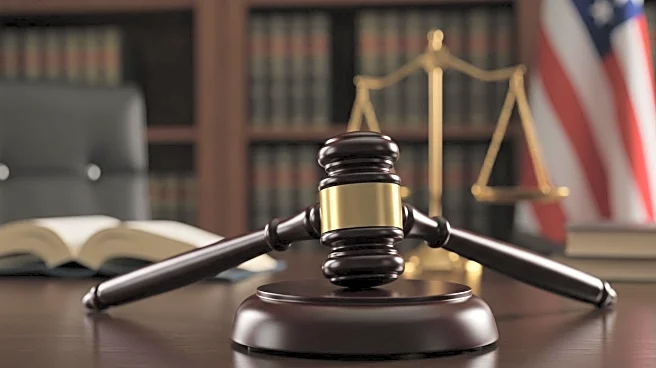What's Happening?
President Donald Trump has announced his intention to nominate several federal prosecutors to serve on North Carolina's federal trial courts. This decision follows a political blockade by the state's senior Republican senator, Thom Tillis, who has been preventing the Biden administration from filling these judicial vacancies. Among Trump's nominees are Lindsey Freeman, who previously served in the Justice Department and is currently an assistant U.S. attorney in North Carolina, and David Bragdon, the chief appellate lawyer for the U.S. attorney's office in the district. Additionally, Susan Courtwright Rodriguez, a U.S. magistrate judge, and Matthew Orso, a lawyer specializing in government investigations, have been tapped for the Western District of North Carolina. This move comes after Senator Tillis expressed dissatisfaction with the White House's handling of his recommendations for an appeals court vacancy.
Why It's Important?
The nomination of federal prosecutors by President Trump is significant as it highlights the ongoing political tensions between the Republican-controlled Senate and the Biden administration. The blockade by Senator Tillis underscores the strategic maneuvers employed by political figures to influence judicial appointments, which can have long-term implications on the judiciary's composition and its decisions. These appointments are crucial as they can shape the legal landscape in North Carolina, affecting how federal laws are interpreted and enforced in the state. The nominees' backgrounds in the Justice Department and private practice suggest a focus on maintaining a conservative judicial approach, which could impact various legal and policy outcomes in the region.
What's Next?
The nominations will likely proceed to the Senate for confirmation, where they may face scrutiny and debate. Given the political dynamics, the confirmation process could become a contentious issue, with potential pushback from Democratic senators. The outcome of these nominations could set a precedent for future judicial appointments, influencing how vacancies are filled amidst political disagreements. Stakeholders, including legal professionals and civil rights groups, may closely monitor the process, advocating for or against the nominees based on their judicial philosophies and past records.










